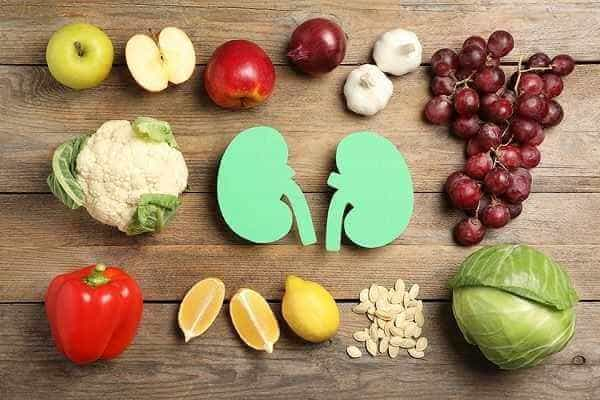Kidney failure, a serious medical condition marked by the kidney's failure to filter waste and toxins from the blood adequately, often necessitates treatments such as dialysis or kidney transplantation in conventional medicine. Nevertheless, Ayurveda - an ancient holistic healing system - offers kidney failure treatment without dialysis. Let’s understand and examine Ayurvedic principles and therapies to address kidney failure naturally, providing hope for those exploring non-invasive options.
Ayurvedic Perspective on Kidney Failure
In Ayurveda, the kidneys are crucial in the "Mutravaha Srotas," or urinary channels. They are fundamental for both filtration and excretion processes. Disruptions among the three Doshas - Vata, Pitta, and Kapha - can trigger kidney problems that lead to toxin buildup termed Ama. Typically, this situation occurs due to aggravated Kapha combined with disturbed Vata, which together hamper effective filtration and disrupt normal urine flow.
Ayurveda seeks to restore balance among these Doshas while promoting detoxification and rejuvenation of kidney function. This comprehensive approach aims not only to manage symptoms but also to foster long-term health improvements without needing dialysis. To cure kidney failure without dialysis, certain treatments are employed.
Book Consultation Now
Ayurvedic Treatments for Kidney Failure Without Dialysis
Following Ayurvedic treatments are administered for kidney failure without dialysis.
1. Herbal Remedies

- Punarnava (Boerhavia diffusa): Esteemed for its natural diuretic effects, Punarnava aids in reducing fluid retention and inflammation while enhancing renal functionality.
- Gokshura (Tribulus terrestris): This herb helps fortify the urinary tract and mitigate risks associated with conditions such as kidney stones.
- Varun (Crataeva nurvala): Known for its detoxifying effects on the kidneys, Varun facilitates better urinary flow.
- Chandraprabha Vati: A traditional formulation used in Ayurveda that supports overall renal health as well as urinary function.
2. Panchakarma Detoxification

Panchakarma practices are pivotal in Ayurveda; they target the elimination of deep-seated toxins recalibrating bodily equilibrium:
- Virechana (Purgation): This technique involves clearing out toxins through your digestive tract.
- Basti (Enema): Therapeutic enemas are designed to cleanse and offer nourishing elements beneficial for the urinary system.
3. Personalized Dietary Adjustments
According to Ayurvedic beliefs, diet plays a key role in reducing stress on the kidneys by focusing on foods tailored specifically to one’s health status:
Recommended foods include:

- Fruits like pomegranate and apple should be consumed moderately.
- Vegetables including bottle gourd, ridge gourd, and pumpkin are advisable selections.
- Whole grains such as barley and rice contribute positively towards kidney health indicators.
By harmonizing lifestyle choices through these diverse Ayurvedic remedies rather than relying solely on techniques such as dialysis or transplants patients may discover more holistic paths toward managing their condition effectively.
Foods to Avoid:

- High-sodium foods like processed snacks.
- Excessive proteins like red meat.
- Potassium-rich foods like bananas and avocados.
Book Consultation Now
Lifestyle Practices

- Yoga and Pranayama: Gentle yoga postures and breathing exercises to enhance circulation, mitigate stress levels, and provide nourishment to kidneys.
- Stress Management: Meditation and mindfulness develop an emotional balance in one person which is key in halting disease progression.
Hydration Guidelines

Ayurveda prescribes the use of warm herbal-infused water for digestion and kidney health. However, the patient's dosage needs to be managed according to their requirements and in consideration of renal function to prevent fluid overload.
Managing Kidney Failure without Dialysis
Many patients managed by Ayurveda therapies have successfully reversed kidney failure. These patients were able to get their creatinine levels normalized; the edema receded and this showed the efficacy of Ayurveda in successfully treating kidney diseases without resorting to dialysis.
Cautions and Considerations
Ayurveda is indeed a fitting alternative to dialysis. Still, it is imperative to treat the patient wisely:
- Consult with Professionals: Connect with well-experienced Ayurvedic practitioners for a tailored treatment.
- Integrated Care: Combining Ayurvedic treatments with conventional medical monitoring is required in serious cases.
How To Avoid Kidney Diseases?
Healthy Diet: Keep salt and processed foods at a minimum and keep them far from the kidneys. Kidney-friendly foods such as coriander, cucumber, and coconut water are to be included. Limit high protein diets, particularly from animal sources, which can be highly detrimental.
- Stay hydrated: Drink enough water daily to aid filtration through the kidneys. Do not overstress the kidneys through dehydration or through void excess drinking.
- Avoid toxin build-up: Reduce alcohol and tobacco intake and limit artificial additives in foods. Ayurvedic detoxification and seasonal Panchakarma are beneficial in clearing the body.
- Regular workout: It is very important for someone to keep up with light exercise, yoga, and walking positively influencing body circulation that in turn prevents kidney problems.
- Regular health routine: Regular checks of blood pressure and blood sugar levels must be followed, knowing that hypertension and diabetes are the leading causes of renal diseases.
Conclusion
The treatment of kidney disease without dialysis sure bears immense difficulties. What Ayurveda offers is thus, organic and holistic treatment to manage and fight back this condition. Ayurvedic science considers the basic reasons, detoxifies the body, and optimizes the doshas from there to potently work out complete kidney health.
Allowing Ayurvedic principles to be merged with medical supervision provides a safe, effective avenue for patients to avoid dialysis in fighting chronic kidney disease. This ancient system enables the self-initiation of establishing balance, vitality, and health.
Book Consultation Now










